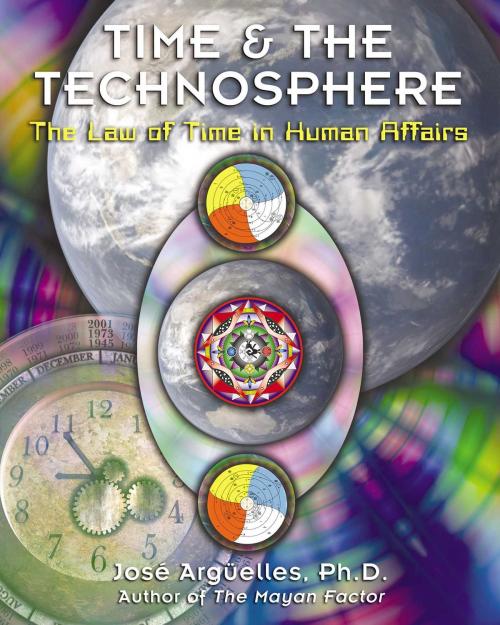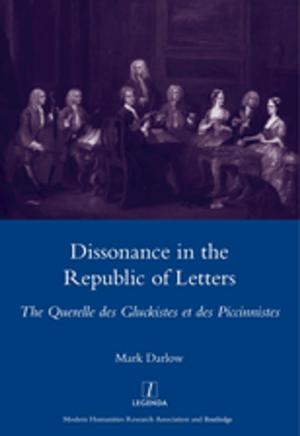Time and the Technosphere
The Law of Time in Human Affairs
Nonfiction, Science & Nature, Science, Physics, Time, Religion & Spirituality, New Age, New Thought, Social & Cultural Studies, Social Science| Author: | José Argüelles | ISBN: | 9781591438731 |
| Publisher: | Inner Traditions/Bear & Company | Publication: | August 3, 2002 |
| Imprint: | Bear & Company | Language: | English |
| Author: | José Argüelles |
| ISBN: | 9781591438731 |
| Publisher: | Inner Traditions/Bear & Company |
| Publication: | August 3, 2002 |
| Imprint: | Bear & Company |
| Language: | English |
A groundbreaking study that distinguishes the natural time of the cosmos from artificial mechanistic time.
• Reveals September 11 as the signal of the end of artificial time according to the Law of Time.
• Long awaited sequel to the author's bestselling book The Mayan Factor.
• Explains the Great Calendar Change of 2004 and its enormous potential for the future of humanity.
In Time and the Technosphere, José Argüelles presents a groundbreaking study that distinguishes the natural time of the cosmos from the artificial mechanistic time under which we currently live. Argüelles defines the actual nature of time as the frequency of synchronization. Applying this Law of Time to an understanding of the entire system of life on Earth, he shows that in order to not destroy Earth's ability to sustain life, we must change our definition of time and adopt a natural harmonic calendar based on the 13-moon 28-day cycle. Until the creation of the Gregorian calendar and the 60-minute hour, most of humanity lived by the 28-day cycle of natural time. The adoption of artificial time has subjected us to a 12:60 time frequency that governs the entire global industrialized civilization--the technosphere. With the collapse of the Twin Towers on September 11, a fissure was created in this artificial technosphere, opening up the noosphere (Earth's mental envelope).
Humanity has a golden opportunity to leave the strife of the past and enter a time of peace by adopting a harmonious natural calendar that will repair the damages caused by the irregular tempo of technospheric time. Our last best chance to adopt this natural time and step into the bright new future promised by the galactic shift of 2012 is the Great Calendar Change of 2004, a new discovery based on the author's mathematical research into the Mayan calendar first begun in his landmark work The Mayan Factor. In Time and the Technosphere, Argüelles reveals the clear distinction between third-dimensional astronomical time and the fourth-dimensional synchronic order of the Law of Time, which holds enormous potential for the future of humanity.
A groundbreaking study that distinguishes the natural time of the cosmos from artificial mechanistic time.
• Reveals September 11 as the signal of the end of artificial time according to the Law of Time.
• Long awaited sequel to the author's bestselling book The Mayan Factor.
• Explains the Great Calendar Change of 2004 and its enormous potential for the future of humanity.
In Time and the Technosphere, José Argüelles presents a groundbreaking study that distinguishes the natural time of the cosmos from the artificial mechanistic time under which we currently live. Argüelles defines the actual nature of time as the frequency of synchronization. Applying this Law of Time to an understanding of the entire system of life on Earth, he shows that in order to not destroy Earth's ability to sustain life, we must change our definition of time and adopt a natural harmonic calendar based on the 13-moon 28-day cycle. Until the creation of the Gregorian calendar and the 60-minute hour, most of humanity lived by the 28-day cycle of natural time. The adoption of artificial time has subjected us to a 12:60 time frequency that governs the entire global industrialized civilization--the technosphere. With the collapse of the Twin Towers on September 11, a fissure was created in this artificial technosphere, opening up the noosphere (Earth's mental envelope).
Humanity has a golden opportunity to leave the strife of the past and enter a time of peace by adopting a harmonious natural calendar that will repair the damages caused by the irregular tempo of technospheric time. Our last best chance to adopt this natural time and step into the bright new future promised by the galactic shift of 2012 is the Great Calendar Change of 2004, a new discovery based on the author's mathematical research into the Mayan calendar first begun in his landmark work The Mayan Factor. In Time and the Technosphere, Argüelles reveals the clear distinction between third-dimensional astronomical time and the fourth-dimensional synchronic order of the Law of Time, which holds enormous potential for the future of humanity.















